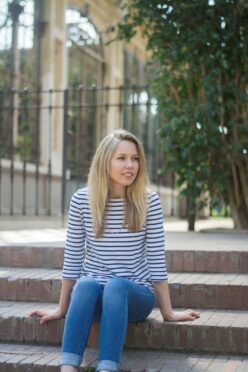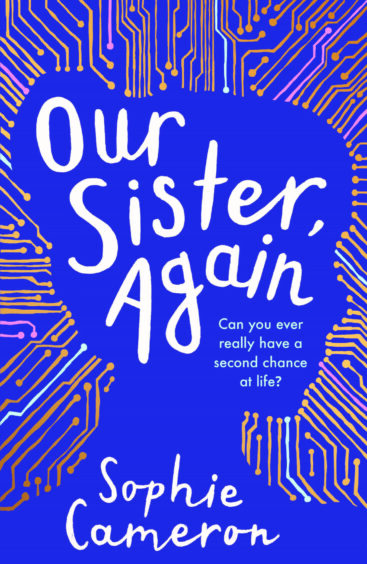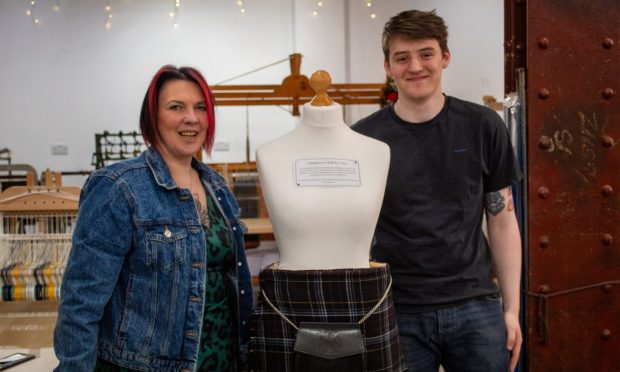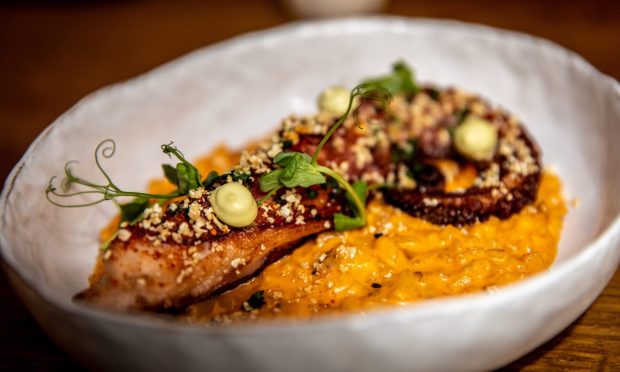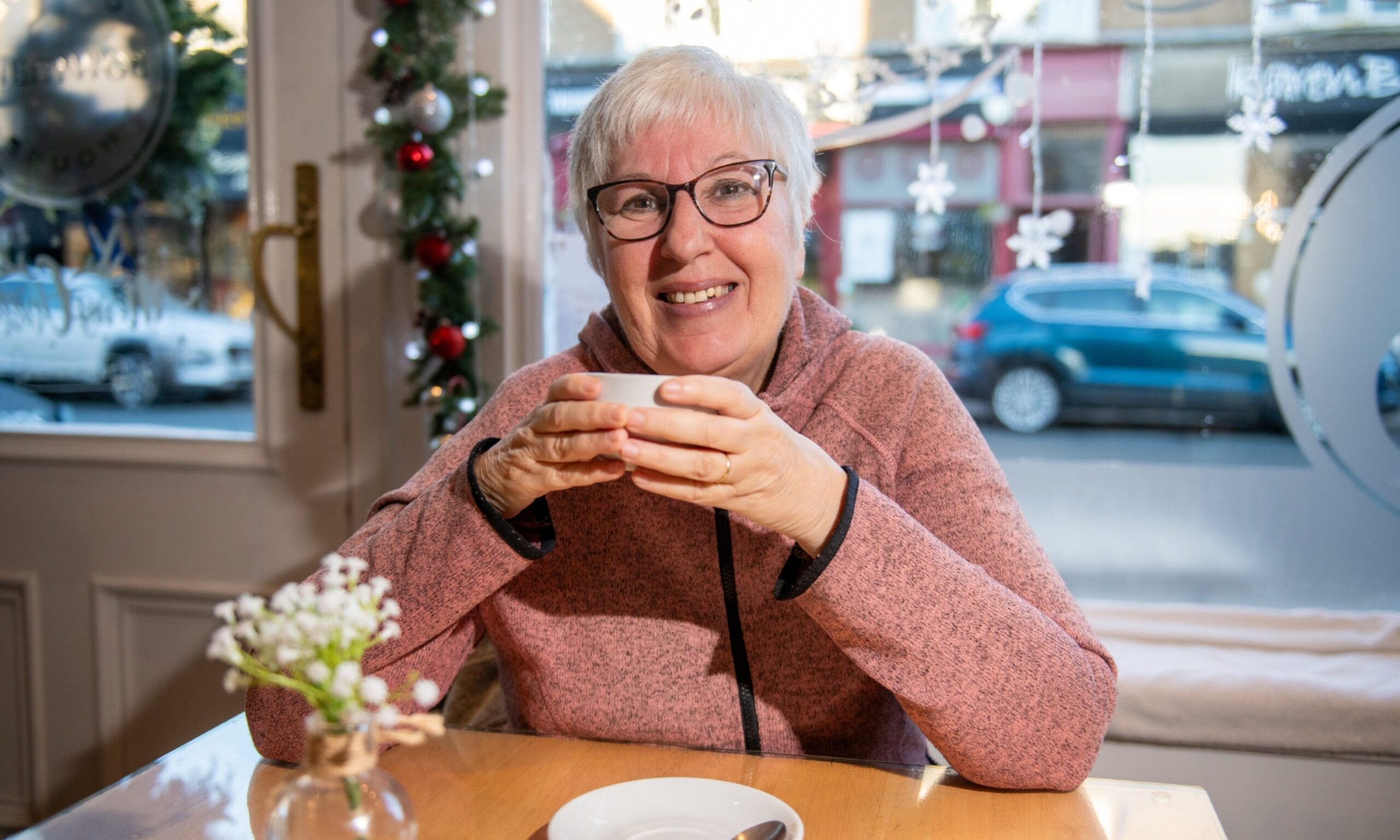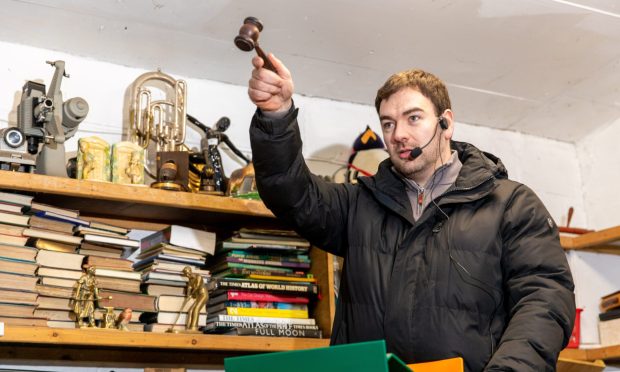Scottish-born and Spanish-based, Sophie Cameron has found her niche in writing fiction for young adults. Her latest novel, Our Sister, Again is an unsettling look at how our reliance on artificial intelligence could go too far…
A lifelong bookworm, Sophie, 34, grew up in the Black Isle and found her path to writing for children and young adults through a postgraduate certificate in creative writing.
“I loved books from a really young age,” she explains. “my mum claims that when I was a baby she would sometimes have to read to me for literally hours before I’d go to sleep, so she definitely helped to instil a love of stories in me.
“I was constantly in the school library and the local library van, and my parents were always very encouraging of my reading and generously made sure I always had a good supply of books to keep me going. Other than writing itself, I think reading is the best thing you can do as a writer. It really helps teach you about aspects of writing like story structure, pacing and character arcs.”
Writing for young adults
While Sophie was doing her creative writing course she submitted the first chapter of a young adult fantasy novel as part of an assignment. The positive feedback she received encouraged her to explore the genre further and eventually led to her first book deal for an Edinburgh-based novel, Out of the Blue in 2018.
Our Sister, Again, is aimed a slightly younger, ‘middle grade’ audience. These stories are written for children aged around 10-13: “When we submitted it to Little Tiger Press they felt the themes would be better for a slightly younger readership. I’d been interested in writing Middle Grade for a while anyway, so editing it to be suitable for around age 10-13 was actually pretty easy and enjoyable. The first draft had been more centre around Isla’s relationship and her friend group, but by making her a few years younger it gave me a chance to focus more on her family, which is really the heart of the book.”
Born out of Sophie’s fascination with TV shows and films about artificial intelligence such as Humans and the Black Mirror Episode Be Right Back, this story has given the author the chance to explore the impact of lifelike robots on the humans they encounter. She wondered; “whether we’d accept them as people just like ourselves, or if the fact they’re machines would always create a rift? One of the main differences between humans and such advanced AI is obviously the question of mortality, and the AI company in Our Sister, Again is ultimately aiming to eradicate grief by recreating people who have passed away and who can’t die again.
“But grief is a fundamental human experience and one that we all go through,” she continues, “so what would that imply for how we think about life? Since these were the questions I wanted to focus on, it made sense for the focal point of the story to be a human (rather than the robot itself) and someone who had recently been bereaved.”
Remote but always connected
Setting the story in Scotland was important to Sophie and the fictional island location, offered the chance to explore life in a remote community alongside the constant connectivity of online presence. “Locations are really important in my books,” she says.
“So far I’ve set all of them in Scotland because it’s the place I know best, and I love including real locations such as specific shops or monuments – I find that helps to root the story in the real world and give it a contemporary feel, even when the action is more fantastical. The island where Isla and her family live in Our Sister, Again is fictional but it’s inspired by Harris and I think it helps shape the story as it’s so fundamental to who the characters are.”
The island where Isla and her family live in Our Sister, Again is fictional but it’s inspired by Harris and I think it helps shape the story as it’s so fundamental to who the characters are.”
Moving away from a city setting was a deliberate choice for Our Sister, Again: “When we think sci-fi we usually think cities,” she points out. “But people in more remote areas are quite often very heavy internet users – it can give them connection, community and access to resources that they don’t have around them. I thought the idea of contrasting this ultra-advanced technology with such a remote location, one that hasn’t physically changed much even after hundreds of years, was really interesting.”
Exploring grief in the modern family
The novel tackles the important issue of grief from a completely new angle – the online presence left behind by so many people when they die. “For some, having all that content to revisit is no doubt very comforting, but for others being able to access so many hours of footage of that person might make it harder for them to move on.
“I tried to illustrate that in Our Sister, Again through Isla and Flora’s parents, who are dealing with their grief in very different ways.” Says the author.
Between her working life in Spain and looking after her two year-old twins it is amazing that Sophie can still find time to write, but she says, “I’m busy working on my next book, another middle grade novel, which will be published by Little Tiger Press in 2023.”
- Our Sister, Again, is out now, £7.99, published by Little Tiger Press.
